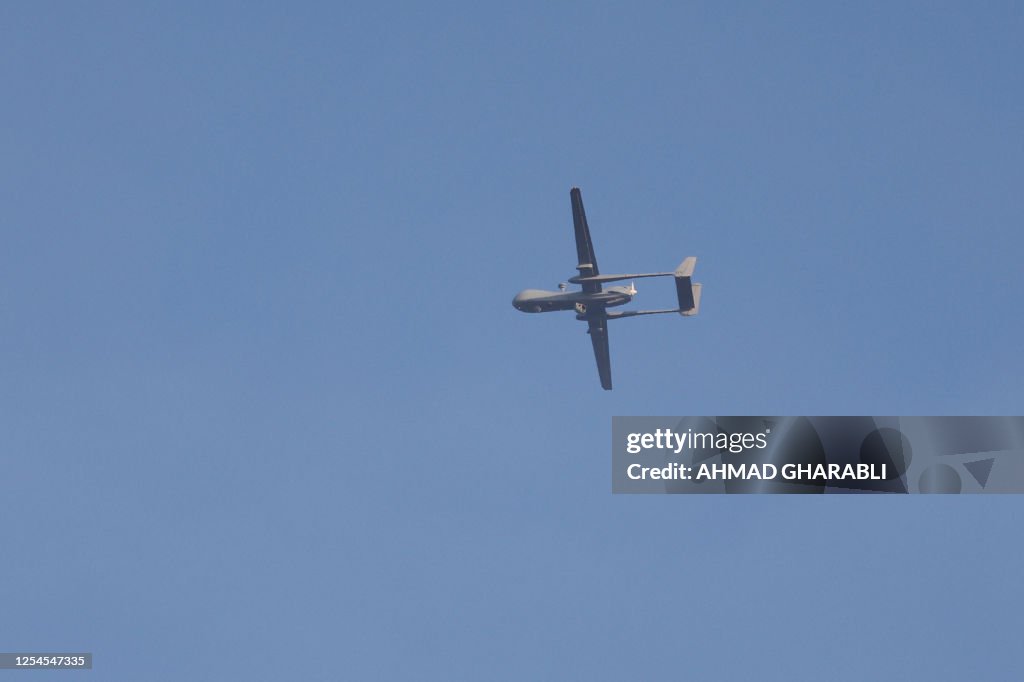
Among the cutting-edge Israeli technologies on display at the GoForIsrael investment conference in Tel Aviv, this month was the “Goshawk,” an autonomous drone hunter patterned on birds of prey.
The Goshawk (known in Hebrew as “Angry Bird”), is being developed by Israeli firm Robotican, in partnership with the Israeli Air Force.
More than a thousand participants and 500 investors descended on Tel Aviv from around the world to attend the conference, which kicked off on May 3. Organized by Cukierman and Co. Investment House and Catalyst Investment, GoForIsrael is among the most prestigious conferences of its type in Israel.
According to Robotican CEO Hagai Balshai, when looking for solutions to the ever-increasing threat of hostile drones, the company looked to nature.
“We said, let’s copy the eagle’s actions and see how we can create an autonomous solution,” he told Zenger News.
While the IAF relies on advanced radars to detect drone threats and uses soft-kill options such as electronic warfare to neutralize them, there was still a need for physical mitigation to prevent small drone intrusions, according to Belshai.

“In the world of homeland security, threat estimations are focused on drones that can threaten airports, strategic facilities, conduct smuggling activities, and more. This must be stopped,” he said.
Some years ago, researchers in the Netherlands actually attempted to train eagles to hunt drones, but the program was not successful.
However, Belshai and his three founding partners felt that the general approach was the correct one.
Once the Goshawk drone acquires a target, “it can reach it from every direction, catch, hurl it to where you want, and come back, ready to grasp it in a net,” he said.
“We made it autonomous because it needs to be operational 24-7. We did not want it dependent on human operators, who would need training,” he added.
Flying at 120 kilometers (393720.00 feets) (393720.00 feet s) (393720.00 feet) an hour, the Goshawk calculates the target’s route, borrowing methods developed for missile defense and aerial combat. Using its on-board camera it zeroes in on the target and captures it in specialized nets, before either dropping it and going to the next task, or transporting it to a designated area.
An ex-member of the Israeli military’s elite Unit 669 combat search and rescue unit, Belshai said his company has so far been in bootstrap mode, relying on growing sales and services for income, and only recently opened up for investment. Based in southern Israel, Robotican has customers in the United States, Britain, Thailand, India, and more.
Another of the company’s cutting-edge products is the Rooster. Developed in coordination with specialist military units, the Rooster is designed to conduct reconnaissance in dangerous or inaccessible areas
Weighing in at only 1.5 kilograms (3.3 pounds), “It’s a small robot that rolls on the floor and knows how to fly,” said Belshai. The Rooster can fly over a chair or stairs blocking its path, or get through a window, he added.
While it was developed in coordination with the military, it’s not designed for purely military purposes, and is well adapted for hazardous industrial environments, said Belshai.
“Special operations, first responders, rescue units, rescue operations in rubble, tunnels, canals, and bridges, it can work among all of them,” he said. The system is already in operational use.
The cyber scene in Israel ‘is stronger than ever
Israeli cybersecurity technologies also played a key role at GoForIsrael, according to Michael Coen, a partner at Cukierman and Co. Investment House.
Indeed, the country’s cyber scene is “stronger than ever,” said Coen, adding that it is also a more important issue than ever before, due to geopolitical changes and rising cyber threats.
“Israel has a strong track record of resilience and adaptability in tough periods. Despite facing numerous challenges including geopolitical market dynamics, tough market conditions, and political instability, we are always thriving, and we always find new technologies and new innovations that have global recognition worldwide,” said Coen.
It is this ability that is enabling Israeli cybersecurity companies to show global clients why Israel is a hub of cybersecurity, he added.
“We see many, many companies fundraising, and we have closed, since the beginning of 2022, a very big round in a cybersecurity company, together with an Italian bank,” he added.
The fact that a European bank decided to invest in an Israeli cybersecurity company reflects the importance of the Israeli cyber industry in its view, Coen stressed.
He highlighted innovation as a key factor driving Israeli cybersecurity solutions forward and giving them a global advantage.
“Most of the cyber companies in Israel provide defense solutions. We see a stronger trend in the innovation of cybersecurity because this field means everything today. One can secure a laptop, an application, an internet-of-things device–anything,” said Coen.
“The common denominator in Israeli defense companies is really innovation. Most of the companies today use artificial intelligence and machine learning. You have some companies using deep learning that is a special branch of machine learning and I think this is something unique,” he added.
Produced in association with Jewish News Syndicate







